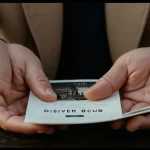Overview of Authentic British Folk Music Workshops
British folk music workshops serve as a vital platform for preserving this rich cultural tradition. These workshops offer participants an immersive experience that goes beyond passive listening, inviting them to engage actively with the music and its history. By participating, individuals not only learn the nuances of folk music but also gain a deep appreciation for its cultural roots. Such workshops are crucial for keeping traditional music alive and vibrant for future generations.
The core feature of these workshops is their commitment to cultural education. Participants are introduced to the historical significance of various folk tunes and dances as well as regional influences that have shaped the music. This cultural immersion is a crucial component, giving learners a bigger picture of the diversity within British folk music.
Also read : Exploring History: Best Exclusive Guided Tours of Britain’s Coastal Fortresses
Engaging in these workshops provides numerous benefits. Participants develop a stronger connection to the music, gain new skills, and often form lasting friendships with like-minded individuals—making the learning experience both educational and social. These experiences not only enhance musical knowledge but also contribute to preserving a cultural legacy, ensuring its continuity and relevance in today’s world.
Types of Workshops Available
Types of folk music workshops vary widely, offering experiences that cater to diverse interests. Participants can choose from workshops focused on singing, where they learn traditional ballads and sea shanties, or those centred around instrument-making, providing an enriching hands-on participation experience. In these forums, attendees often relish the opportunity to craft their own folk instruments, understanding the craftsmanship involved.
In parallel : Uncover Britain’s Best Post-War Architectural Gems: Top UK Destinations to Explore
Seasonal and region-specific workshops are also popular, highlighting the unique characteristics of local folk traditions. For instance, a workshop in Cornwall may emphasise traditional Cornish music, complete with its distinctive regional instruments and styles, while a Scottish counterpart might focus on Highland music and dance.
Community involvement is a vital component of these workshops, encouraging participants to engage with local musicians and enthusiasts alike. Such collaborations not only foster community spirit but also provide a dynamic learning environment where participants can share knowledge and techniques.
These workshops aren’t just learning platforms; they serve as hubs for cultivating community ties. By engaging with others in these rich, immersive experiences, participants contribute to preserving the vibrant tapestry of British folk music traditions for generations to come.
Workshop Locations and Schedules
Participating in British folk music workshops often requires understanding specific workshop locations that are renowned for their vibrant music scenes. Various regions across the United Kingdom host these educational events, each offering a distinct flavour of regional folk music. For instance, Yorkshire and the Lake District are famous for workshops that focus on their unique traditions and musical styles, providing attendees with a rich cultural experience tied intrinsically to the area.
Popular Regions for Folk Music Workshops
Locations like Edinburgh and Cardiff are particularly significant, as they cater to a diverse audience interested in exploring regional folk music. Each region’s workshops are designed to highlight local instruments, tunes, and dances that contribute to the nation’s musical diversity.
Schedule Overview and Important Dates
Event schedules can vary, offering both one-off experiences and weekly sessions that run throughout the year. Key dates often align with local festivals and cultural events, making them ideal for enthusiasts looking to immerse themselves in the cultural ambiance.
How to Choose the Right Workshop Location
Selecting a workshop location depends on your musical interests and logistical considerations. Factors like travel distance, accommodation availability, and the specific music tradition of interest should guide your choice.
Enrollment Process for Workshops
Enrolling in British folk music workshops is a straightforward process that begins with understanding the available enrollment details. Workshops often require participants to complete a registration process online, where key information about the workshops is provided, including dates, costs, and venue details. Make sure to review these carefully before proceeding.
Once you have found a suitable workshop, the next step involves completing an online form, which will gather necessary personal information. Be aware of key deadlines for registration process to ensure your spot is secured well in advance. Payment considerations are important, as some workshops require full payment upfront, while others offer instalment plans.
Upon successful registration, participants can expect a confirmation email outlining the expectations for workshop participation. You will usually receive an itinerary, list of things to bring, and any preparatory materials necessary. This advance information helps you make the most out of your learning experience.
Understanding these steps thoroughly allows you to focus more on the exciting journey of engaging with British folk music, ensuring a seamless and enriching workshop participation. Make sure to ask questions if any part of the registration remains unclear.
Unique Aspects of British Folk Music
Authentic British folk music is a tapestry woven with rich cultural threads and significant historical roots. Its cultural significance can be seen in the many folk traditions that have evolved over centuries. These traditions are not just musical expressions but are reflective narratives of the regional identities, telling stories that resonate with the lands of their origin.
At the heart of these traditions are key instruments, each playing a distinctive role in the workshops. The fiddle, accordion, and bagpipes are among the instruments that enthusiasts often encounter, each adding a unique sound and story. Learning to play these instruments involves more than mastering notes; it is about embracing the cultural legacy they carry.
Folk music’s ability to echo regional influences makes it an intriguing study for participants. When engaging with instruments and songs, they can explore how local dialects and landscapes have shaped the music. This exploration deepens their appreciation, allowing them to understand and cherish the regional characteristics. These unique aspects ensure that engaging with British folk music is a journey into the heart of the nation’s cultural heritage.
Participant Testimonials and Experiences
Engaging in British folk music workshops often leaves a lasting impact, as reflected in numerous participant testimonials. Many attendees highlight the diverse personal experiences gained, which extend beyond simply learning music. Participants often describe workshops as transformative, providing a deeper connection to their cultural heritage and musical prowess.
-
Testimonial Highlights: Feedback typically praises the workshop’s immersive nature and the sense of community fostered among attendees. Participants frequently mention the joy of sharing and learning alongside fellow enthusiasts, creating bonds that transcend the music itself.
-
Success Stories: Many individuals attribute subsequent personal or artistic achievements to their workshop experiences. For instance, some have formed bands, while others have pursued advanced musical studies, driven by inspiration and confidence gained during the workshops.
Additionally, the workshops nurture individual growth, with participants recalling fond memories of memorable moments shared. They often cite the unique chance to learn from expert instructors as a pivotal aspect of their learning journey. These experiences reflect the workshops’ impact on both skill development and community-building, enriching the lives of those involved.
Resources and Materials for Participants
Participants of British folk music workshops are offered a well-curated selection of music resources to enhance their learning experience. Workshops provide essential materials that are pivotal for mastering traditional music skills. During sessions, attendees receive learning materials such as song sheets, chord charts, and instructional guides specifically tailored to various folk instruments like fiddles and bagpipes. These resources help participants to practice outside of workshop hours, solidifying their new skills.
Moreover, to support continued growth beyond the workshop, instructors often recommend a range of additional participant tools. This includes suggested readings and access to online platforms that offer interactive classes and community forums. Many enthusiasts find these digital resources invaluable as they allow ongoing engagement with folk music.
In addition to physical and digital resources, workshops frequently share tips for sourcing and maintaining traditional instruments. This is crucial for those interested in pursuing folk music further. Overall, the carefully selected resources and materials ensure that learning extends well beyond the workshop atmosphere, aiding participants in their journey to mastering the rich tapestry of authentic British folk music.
## Highlighting Instructors and Experts
Engaging in **British folk music workshops** means learning under the tutelage of esteemed **folk music instructors** known for their expertise and dedication. These experts bring a wealth of knowledge, often derived from years of immersing themselves in folk traditions. Their teaching credentials are impeccable, with many instructors having performed at renowned folk festivals or having affiliations with university music departments.
### The Role of Folk Music Instructors
Instructors play a significant role in shaping the workshop experience. Their responsibility is not only to teach but also to **guide participants** towards achieving a robust understanding of folk music and its **cultural significance**. This often involves breaking down complex techniques into more manageable steps, ensuring everyone can follow along, regardless of their skill level.
### Teaching Styles and Methods
The methods employed by these instructors vary. Some focus on an **immersive experience**, encouraging hands-on participation and learning through doing. Others might use storytelling to share the historical context of a piece, enriching the learner’s understanding. This variety in teaching styles helps cater to different learning preferences and enriches the overall workshop environment, making each session unique and insightful.










